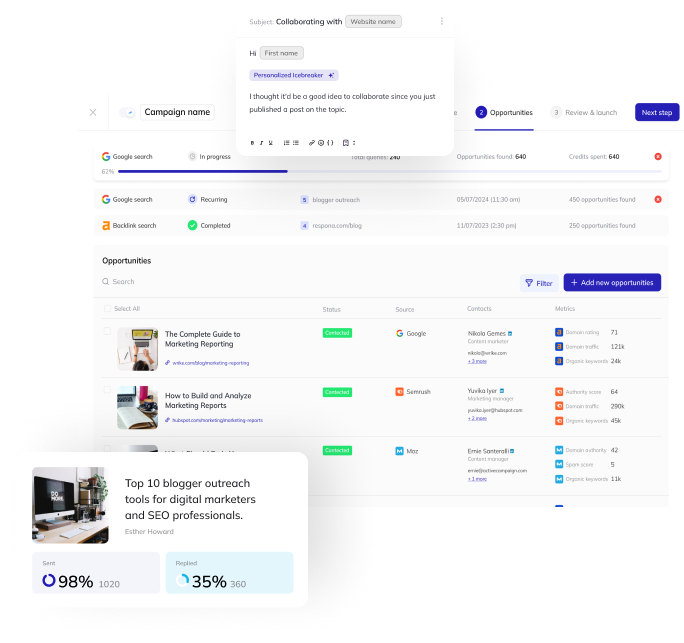Looking to start your own affiliate marketing adventure but not sure where to start?
We’ve got you covered.
In this post, we will be talking about the top 8 (in our opinion) affiliate marketing examples that hopefully will inspire you with fresh ideas for your own affiliate marketing campaign.
Let’s get started.
Link building cheat sheet
eBay
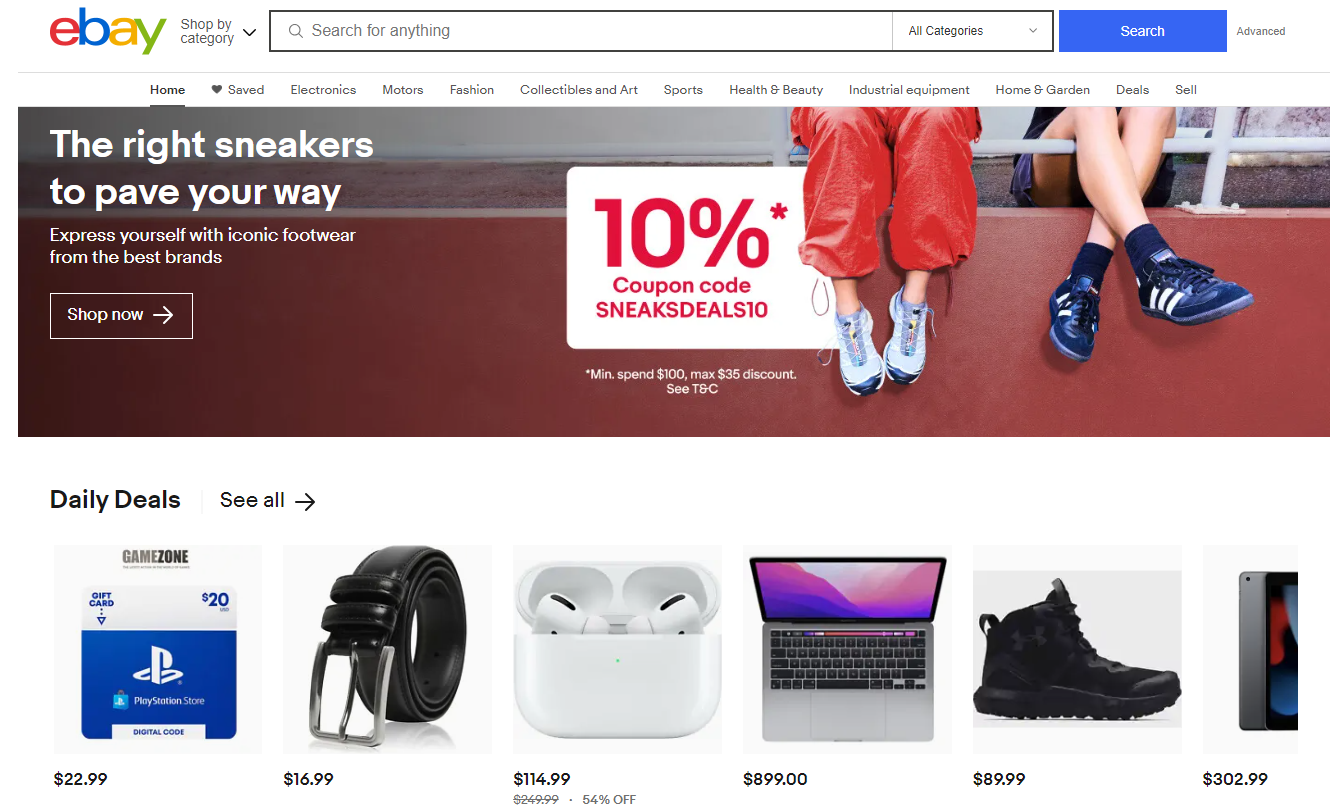
eBay has been one of the pioneers in the world of e-commerce with its innovative auction model.
Their affiliate marketing strategy, known as the eBay partner affiliate network, is primarily what makes their case so compelling.
How it works is pretty straightforward.
An affiliate, or in eBay’s terms, a partner, promotes products listed on eBay on their website, blog, or social media platform.
When a user clicks on the affiliate link and purchases the product on eBay, the affiliate earns a commission.
The old reliable formula.
Now, what sets eBay’s affiliate marketing apart from other programs is its vast and ever-changing inventory due to its auctioning system.
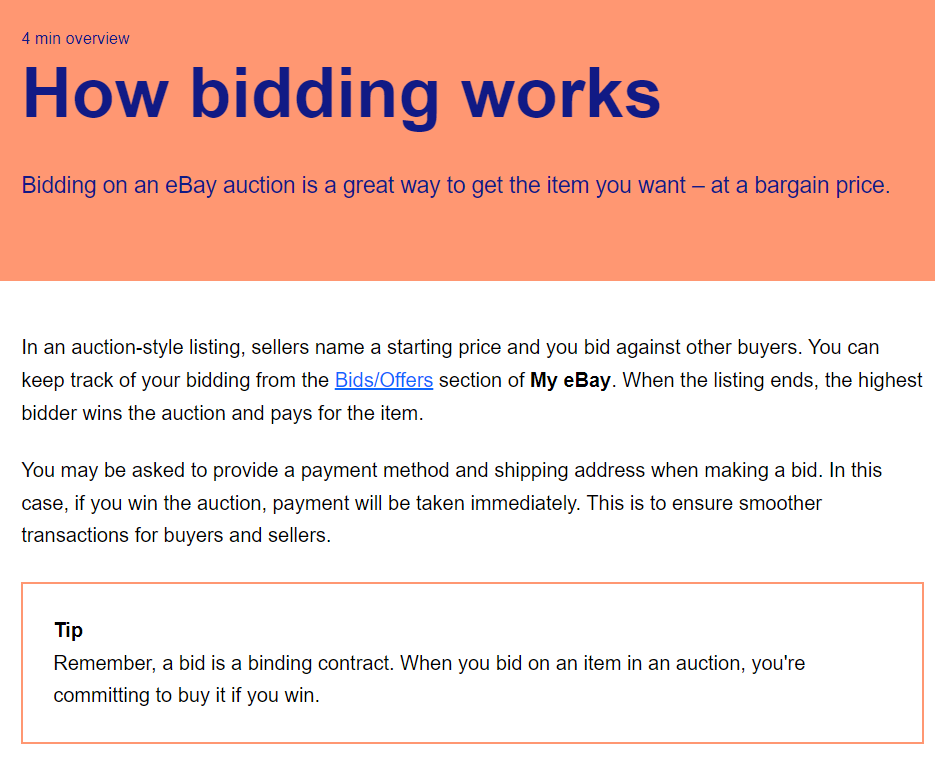
This dynamic platform allows affiliates to promote items that specifically cater to their audience, making it significantly easier to drive successful transactions.
Plus, the unpredictability of auctions adds an element of excitement which can stimulate user interaction and potentially yield higher conversion rates.
The program also offers various incentives for affiliates based on transactions, making it a lucrative opportunity.
Ryan Robinson

Let’s switch gears now and talk about Ryan Robinson, who isn’t a multinational corporation, but a passionate and experienced content creator who turned his blog into a digital marketing goldmine.
Ryan showcases his expertise through his blog, where he provides valuable advice on side hustles, online businesses, and entrepreneurship.
The way he conducts his affiliate marketing strategy is both ingenious and straightforward.
Ryan primarily promotes products and services that he personally uses and finds valuable.
These include online courses, website builders, podcast hosting platforms, and more linked subtly within his content.
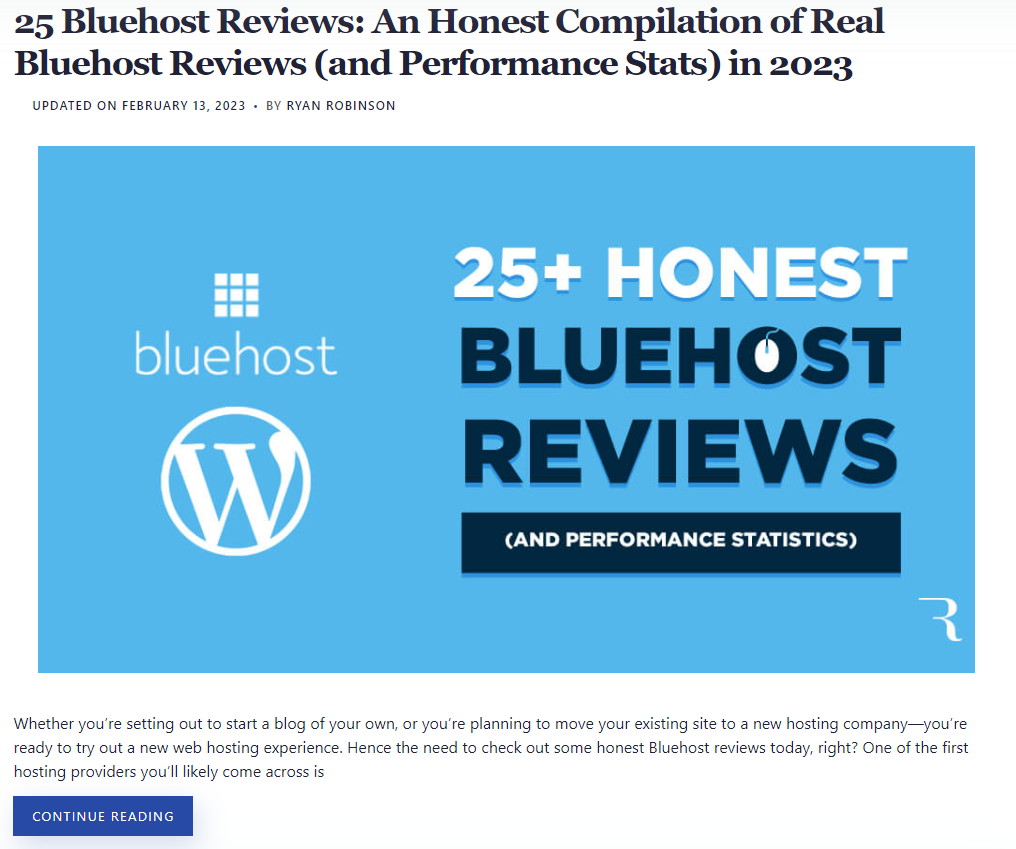
Now, why is Ryan’s approach to affiliate marketing so unique?
It mainly boils down to three key elements:
- Authenticity
- Trust
- Value
As a blogger, Ryan only endorses products that he believes in and has found to be useful, which adds authenticity to his recommendations.
This transparency helps build trust with his audience, which in turn leads to strong conversion rates.
Secondly, Ryan’s content is all about value for his readers.
Instead of focusing solely on the promotion, he seamlessly integrates affiliate links into high-quality content.
It’s not hard to see that his ultimate goal is to help his readers succeed in their entrepreneurial ventures.
His success isn’t just in the commission he earns, but more importantly, in the loyal audience that keeps yearning for more of his content.
It’s a winning formula that proves affiliate marketing can be both rewarding and reader-centric.
NerdWallet

Shifting the focus to the finance industry now, let’s talk about NerdWallet, another shining example of successful affiliate marketing.
NerdWallet is a personal finance website that provides users with tools and advice to make well-informed money-related decisions.
With topics covering everything from credit card comparisons to investing, NerdWallet has the entire financial sphere laid out in front of readers.
Now, to the juicy part – how does NerdWallet do affiliate marketing?
Essentially, the website features reviews and comparisons of financial products.
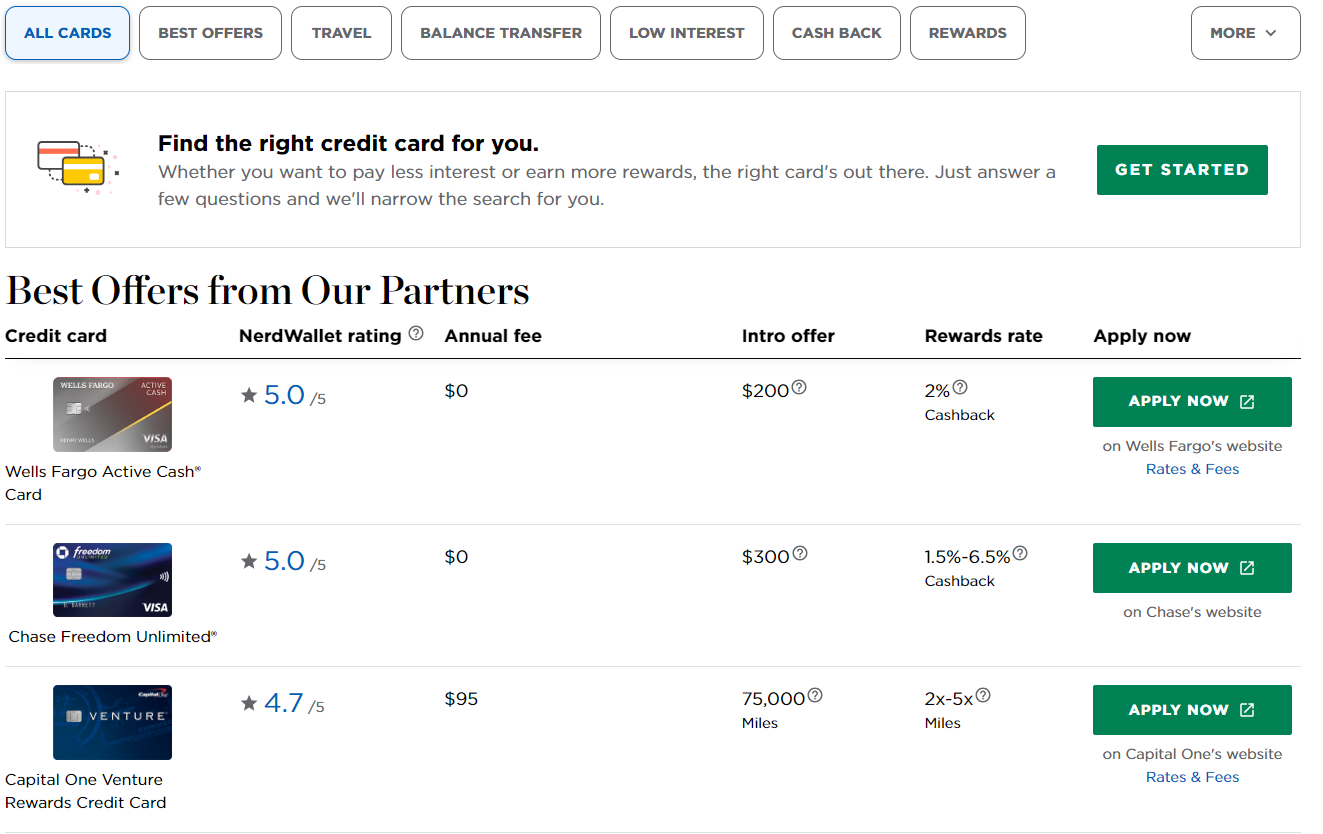
When a user clicks through and signs up for a product such as a credit card or loan based on a NerdWallet recommendation, the company earns a commission.
So, what makes NerdWallet stand out in the sea of finance-related affiliate marketers?
Similar to Ryan we just talked about, the key is in their approach to affiliate marketing content, transparency, and user-centric service.
This foundation has allowed them to become a trusted voice in the personal finance space.
Then, it’s the transparency.
They highlight their affiliate relationships at the end of articles and stress that their recommendations are driven by thorough research, not commission rates.
TripAdvisor

Let’s traverse into the travel industry with TripAdvisor – a giant in the world of online travel guides and a master of affiliate marketing.
TripAdvisor primarily functions as a user-generated content platform, having millions of reviews covering hotels, restaurants, attractions, and more.
However, content marketing is a key cog that drives their affiliate revenue machine.
In its case, their B2B affiliate program works like this: on TripAdvisor, you’ll find links leading to external booking sites.
When a user clicks these links and proceeds with a reservation, TripAdvisor earns a commission. It’s as simple and effective as that.
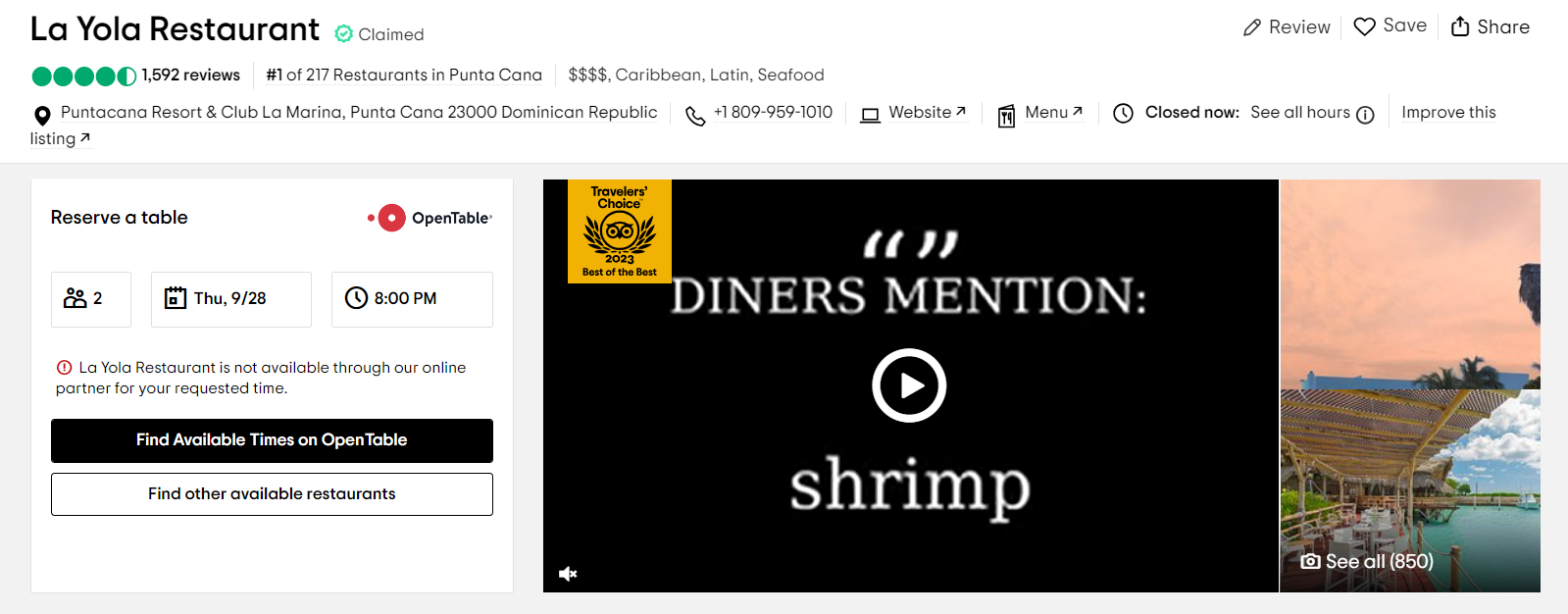
So what makes TripAdvisor’s dive into affiliate marketing stand out?
A few key factors come to mind: niche specificity, audience trust, and seamless integration of affiliate links.
Unlike general online marketplaces, TripAdvisor focuses specifically on travel, allowing them to create targeted, high-quality content that helps travelers make informed decisions.
This focus makes their affiliate links more efficient as they cater to a specific audience with tailored needs and wants.
Over the years, it has established itself as a go-to source for unfiltered, honest traveler reviews.
This trust directly extends to their affiliate partners, increasing the likelihood of users making a booking through their site.
Finally, the inclusion of affiliate links doesn’t feel like an intrusive sales pitch but a natural extension of their service – helping users book their perfect trips conveniently.
Just a Girl and Her Blog

Moving on to the cozy corners of home organization and decor, “Just a Girl and Her Blog” stands as an excellent example of successful affiliate marketing, proving that you don’t need to be a large corporation to make it big.
Just a Girl and Her Blog is managed by Abby Lawson, who uses her platform to share her passion for home decor, organization, and DIY projects.
To fund her blog and monetize her passion, Abby employs affiliate marketing.
But how does she do it?
Well, Abby uses her blog posts and email newsletters to share and recommend products and services that she genuinely likes and uses.

When a reader clicks on one of these affiliate links and makes a purchase, Abby makes a small affiliate commission.
You probably already noticed that the common theme with every example on our list is their authenticity and the level of engagement she has with her audience.
And Abby’s example is successful because she is able to connect with her readers on a personal level.
She shares her own experiences and success stories, and the items she recommends are often ones she uses daily in her own home or projects.
Smart Passive Income
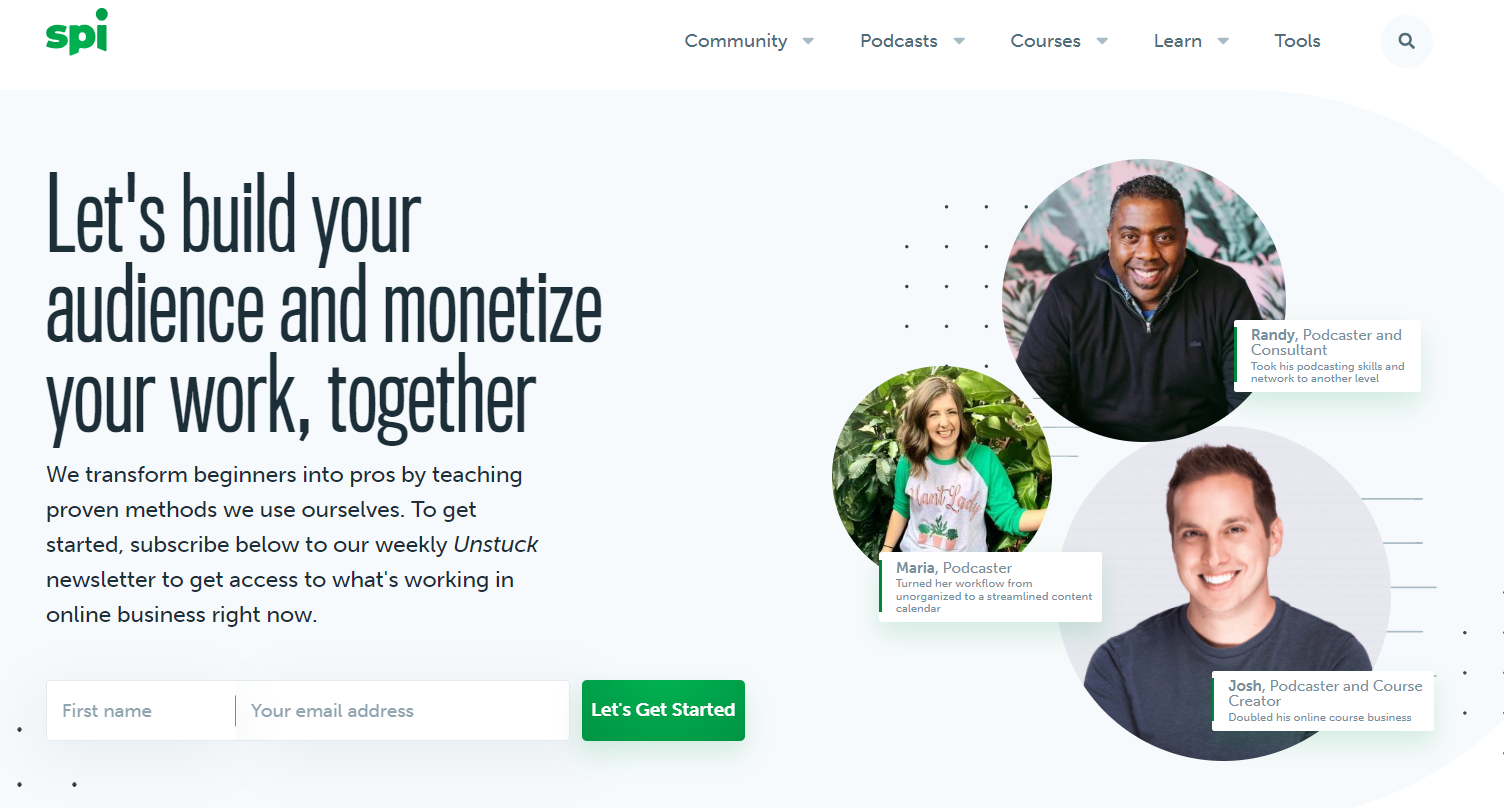
Talking about Pat Flynn’s Smart Passive Income (SPI) is like discussing a masterclass in affiliate marketing.
SPI is a resource-rich platform where Pat shares strategies on how to create a successful online business.
Affiliate marketing is deeply woven into SPI’s business model.
Throughout Pat’s blogs, podcasts, and tutorials, he recommends tools and services for building online businesses.
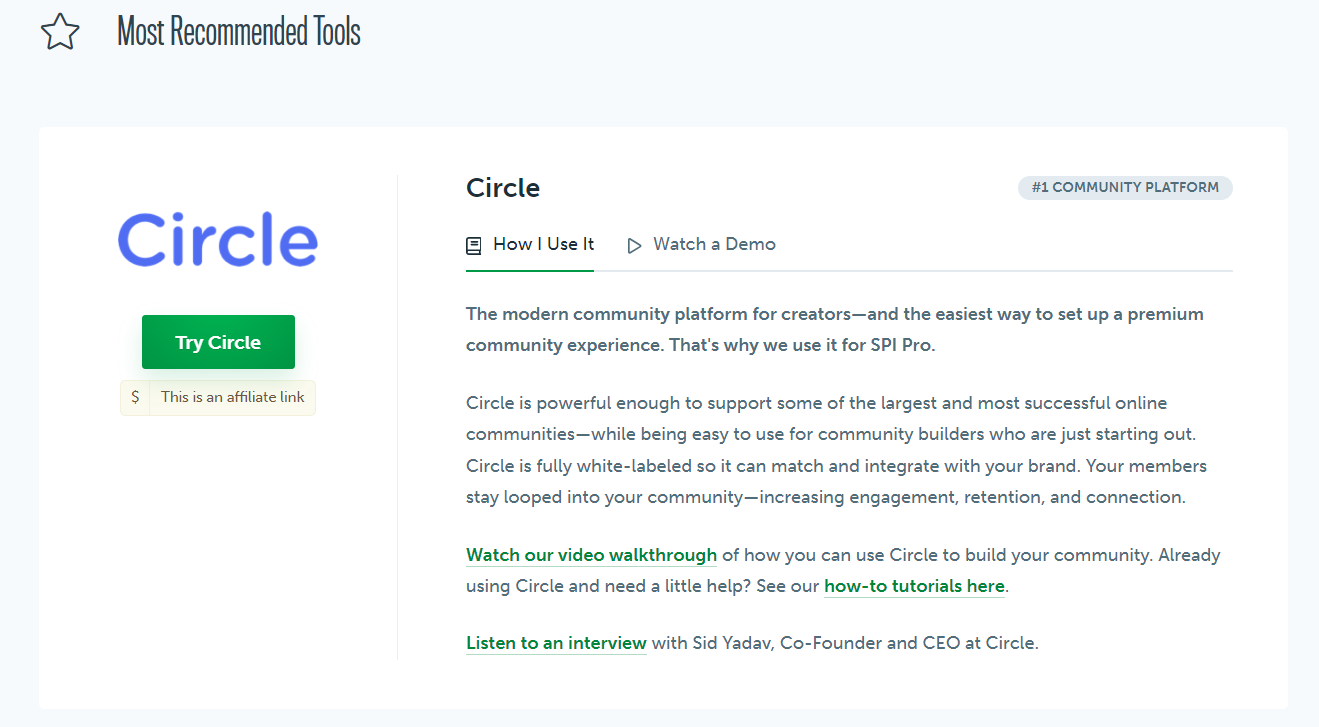
When a user makes a purchase through one of these embedded links, it earns him a commission at no extra expense to the buyer.
So what makes Smart Passive Income’s affiliate marketing so successful and unique?
Majorly, it’s the authenticity of Pat’s work, the transparency of his operations, and the tremendous value he offers in his content.
GoDaddy

Swinging over to the tech world, let’s chat about GoDaddy, a massive player in the domain registration and web hosting industry.
Besides its core services, GoDaddy also maintains a robust affiliate marketing strategy which plays a crucial role in its business model.
The GoDaddy affiliate marketing program is pretty straightforward. Affiliates can obtain links, banners, and ads for GoDaddy products from their affiliate dashboards.
When these elements are used on blogs, websites, and social media platforms, and a user clicks through to make a GoDaddy purchase, the affiliate earns a commission.
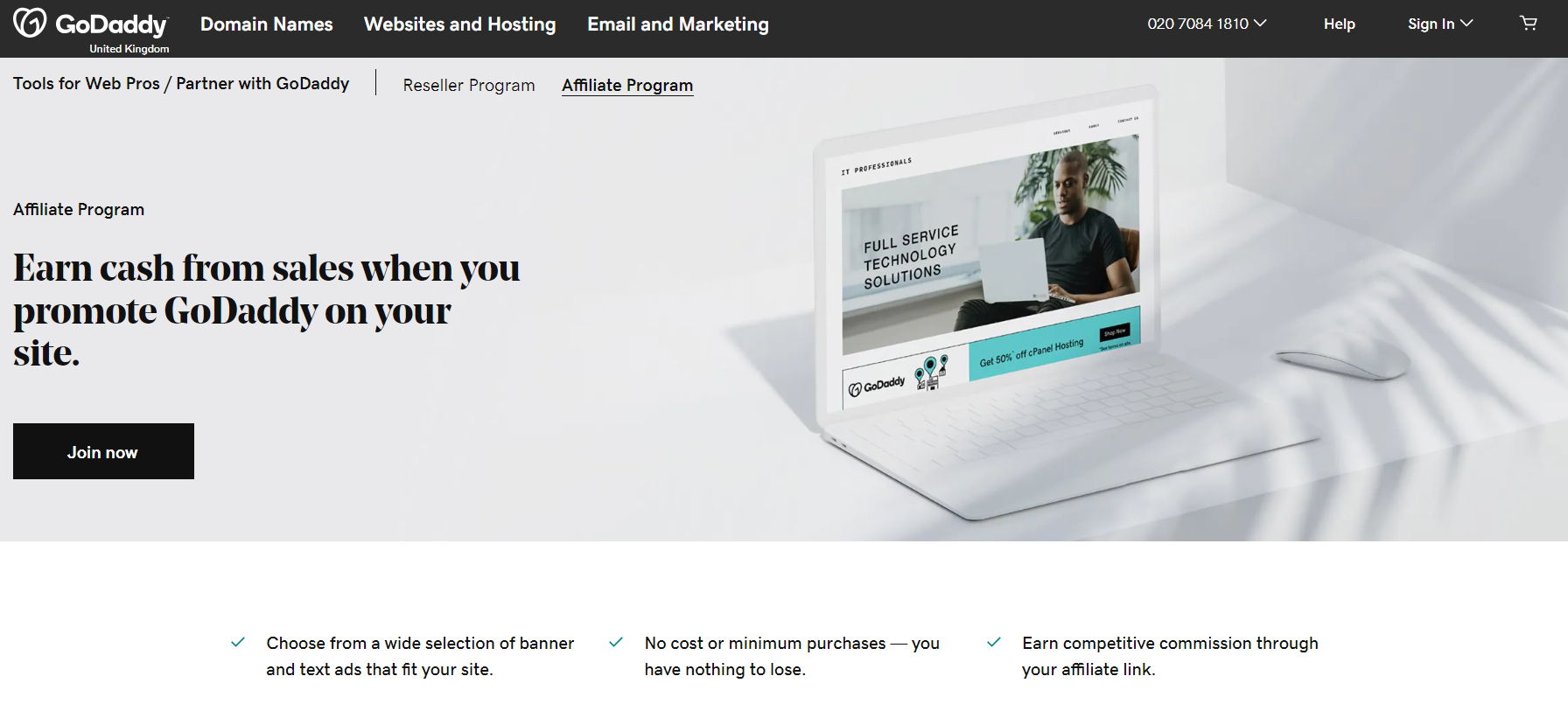
Now, what makes GoDaddy’s affiliate marketing unique and successful?
There are a few components: brand power, product diversity, and the lucrative commissions they offer to affiliates.
From domain registration to web hosting, SSL certificates to email marketing services, affiliates have a myriad of services they can promote to their audience.
The best thing about it is the affiliate commissions span across all GoDaddy products – with 10% payouts for affiliates.
Considering domain name prices may range from hundreds to thousands of dollars, affiliates are often looking at pretty sizeable additions to their wallets.
SkillShare

Educational platforms are also making waves in the affiliate marketing scene, and Skillshare is a prime illustration of this.
Skillshare is an online learning community with thousands of classes spanning various disciplines, from graphic design to entrepreneurship.
It offers a commission to affiliates who direct new users to sign up for either a free trial or paid membership.
These affiliates can be bloggers, educators, or influencers who share Skillshare’s classes on their platforms.
The universal appeal of learning and Skillshare’s vast range of courses plays a major role in its success.
No matter an affiliate’s niche, whether it’s photography, marketing or even wellness, there’s a course they can promote to their audience.
Another point that makes SkillShare stand out is the fact that they also provide a fixed commission for every new user who signs up for a free trial.
This low barrier to entry is attractive for users and increases conversion rates for affiliates.
But, if a user becomes a paying customer those commissions become ever more lucrative for affiliates.
Link building cheat sheet
Now Over To You
Hopefully, these examples have given you a better understanding of what makes affiliate marketing “tick”.
Need help recruiting affiliates for your own program?
Don’t hesitate to start your 14-day free trial with Respona to see how we can help.
Frequently Asked Questions (FAQ)
What is affiliate marketing?
Affiliate marketing is a strategy where an individual partners with a business to make a commission by referring readers or visitors to the business’s particular product or service.
Essentially, you’re promoting someone else’s product and receiving a reward for successful referrals.
How does an affiliate earn income?
Affiliate income is earned through commission rates set by the business partner.
When a customer completes an action, like making a purchase or signing up for a service through an affiliate’s referral link, the parner earns a percentage of that affiliate sale.
How long does it take to become a successful affiliate marketer?
Success in affiliate marketing depends on various factors including niche selection, content quality, target audience’s trust, and marketing proficiency.
It can take anywhere from several months to several years to become truly successful.
Do I need a website or blog to start affiliate marketing?
While having an affiliate website or blog can significantly help your affiliate marketing strategy, it’s not strictly necessary.
You can also utilize social media platforms, email marketing, or even video content to drive traffic to your affiliate links.
What types of products can I promote with affiliate marketing?
With affiliate marketing, you can promote virtually any affiliate product or service, provided it’s relevant to your audience and you believe in its value.
This can be anything from digital products like eBooks, courses, software, or physical products like household items, beauty products, electronics, and more.
You can also promote services, like subscription boxes, travel bookings, or digital service platforms.





![Affiliate Management Guide for 2024 [+ Tools]](https://respona.com/wp-content/uploads/affiliate-management-1024x576.jpg)
